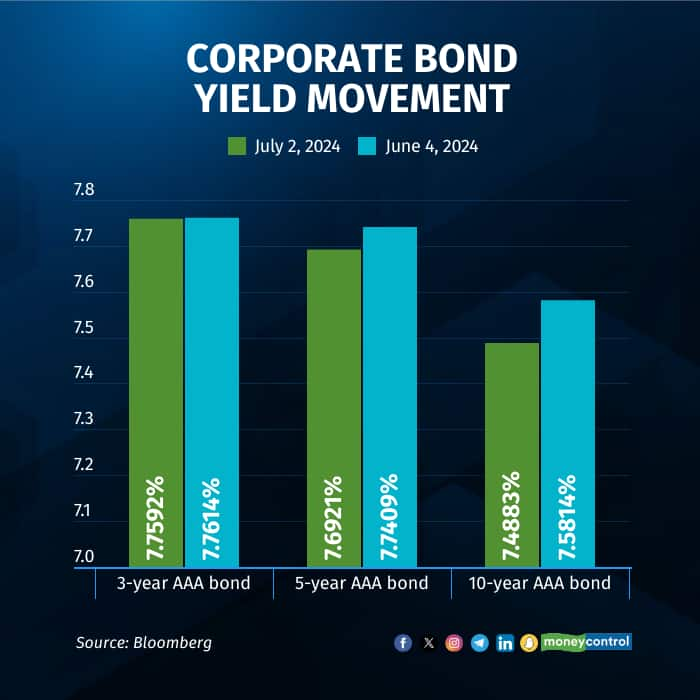



The Securities and Exchange Board of India (SEBI) lowering the minimum face value criterion on corporate bonds on July 3 will increase retail participation.
The market watchdog had reduced the minimum investment amount to Rs 10,000, from a steep Rs 1 lakh. This limit had itself been slashed from a huge Rs 10 lakh previously.
According to Gopal Tripathi, head of treasury, Jana Small Finance Bank, this will lead to an increase in the number of retail investors in the corporate bond market. This higher level of participation could mean lower yields on these instruments, money market experts told Moneycontrol.
"Lower face value will also help increase trading volume and, hence, enhance the liquidity in the market," said Nikhil Aggarwal, founder and CEO of Grip Invest, an alternative investment platform.
SEBI had said in a release that companies may issue debt security or non-convertible redeemable preference shares on private placement basis with a face value of Rs 10,000 each. It added that issuers must appoint at least one merchant banker for the issue.
Also read: Online bond platforms ask Sebi to ease sales, automate securities database to make market-segment more retail friendlyAlready, the advent of online bond trading platforms had pushed retail participation higher, with growth pegged at an annual 60 percent to 70 percent by some market observers, though on a small base.
V. Ramachandra Reddy, head, treasury, Karur Vysya Bank, said SEBI's move will bring down companies' borrowing costs and reduce their dependence on banks.
In December 2023, Reserve Bank of India deputy governor J Swaminathan had pointed to the growing links between banks and non-banking financial companies (NBFCs), which was evident in the sharp surge in loan growth.
“There is fear of interconnectedness as bank loans to NBFCs have been growing at 30 percent,” Swaminathan said at a banking conclave in Mumbai.
The central bank increased the risk weight on the exposure of scheduled commercial banks (SCBs) to NBFCs by 25 percent, which led to an increase in the cost of borrowing.
Expected easing yieldsSEBI's move, which will funnel more investors into the bond market, will push up demand and, consequently, bond prices. While money market experts see some moderation in yields (bond prices and yields move in opposite directions) they do not see a precipitate fall.
Also read: After the equity rush by retail investors, fintechs see bonds taking off
"While not immediate, over time, yields should see a contraction," Aggarwal of Grip Invest said.
In the last one month, yields on the corporate bonds in the secondary market eased around 5-10 basis points (bps), tracking the easing yield on the government securities, falling inflation and inflows from foreign portfolio investors, experts said.

The yield on AAA-rated corporate bonds maturing in three years was trading at 7.7592 percent on July 2, compared to 7.7614 percent on June 4, according to Bloomberg data.
Further, AAA-rated five-year corporate bonds were trading at 7.6921 percent yield on July 2, versus 7.7409 percent on June 4, the data showed.
The yield on 10-year bonds eased to 7.4883 percent on July 2, from 7.5814 percent on June 4.
Discover the latest Business News, Sensex, and Nifty updates. Obtain Personal Finance insights, tax queries, and expert opinions on Moneycontrol or download the Moneycontrol App to stay updated!
Find the best of Al News in one place, specially curated for you every weekend.
Stay on top of the latest tech trends and biggest startup news.